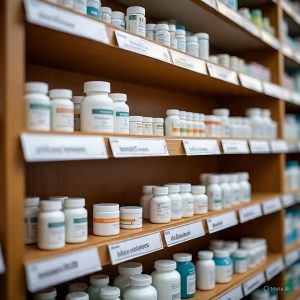—
1. Painkillers (NSAIDs)
Non-steroidal anti-inflammatory drugs (NSAIDs) like ibuprofen, naproxen, and diclofenac are commonly used to relieve pain and inflammation.
Risk: Prolonged or high-dose use can reduce blood flow to the kidneys, potentially causing kidney damage or chronic kidney disease.
2. Antibiotics
Some antibiotics, such as aminoglycosides (gentamicin, streptomycin) and vancomycin, can be toxic to the kidneys if not properly monitored.
Risk: Overuse or improper dosing can lead to acute kidney injury.
3. Proton Pump Inhibitors (PPIs)
Drugs like omeprazole, esomeprazole, and lansoprazole, commonly used for acid reflux and ulcers, have been linked to kidney problems with long-term use.
Risk: Chronic use may increase the chance of interstitial nephritis and reduced kidney function.
4. Diuretics
Also called “water pills,” drugs like furosemide and hydrochlorothiazide help reduce fluid retention.
Risk: Overuse can cause dehydration and electrolyte imbalances, straining the kidneys.
5. Chemotherapy Drugs
Certain cancer treatments, including cisplatin and methotrexate, are known to be nephrotoxic.
Risk: They can cause permanent kidney damage if kidney function isn’t carefully monitored.
6. Contrast Agents in Imaging Tests
Dyes used in CT scans or MRIs can sometimes harm the kidneys, especially in people with pre-existing kidney problems.
Risk: This may lead to contrast-induced nephropathy if proper precautions aren’t taken.…….CONTINUE FULL READING>>>>>



